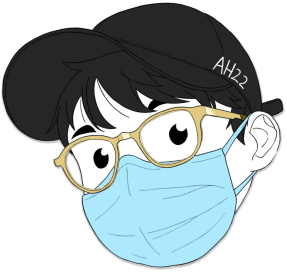Happy AAPI Heritage Month! This May, I’m graduating from college. And as I contemplate both my uncertain post-grad future and my Asian American identity, I am reminded of a time in my life that felt awfully similar.
A Far-Off Future
My senior year of high school was memorable for several reasons. I had the winning design for our Class of 2017 T-shirt, our marching band was for the first time split into Varsity and Junior Varsity, and my class’s senior prank was so egregious it ended up on the local news (for the record I took zero part in it).
But one thing I had perhaps taken for granted, that I now look back on with pride, is my senior “thesis” project, where I spent a year researching a social issue: the lack of diversity in American entertainment. At the end of the year, I gave a speech to a couple teachers presenting my findings along with a nifty PowerPoint I made.
(For some reason, I was really into the aesthetics of screenplay formatting at the time).
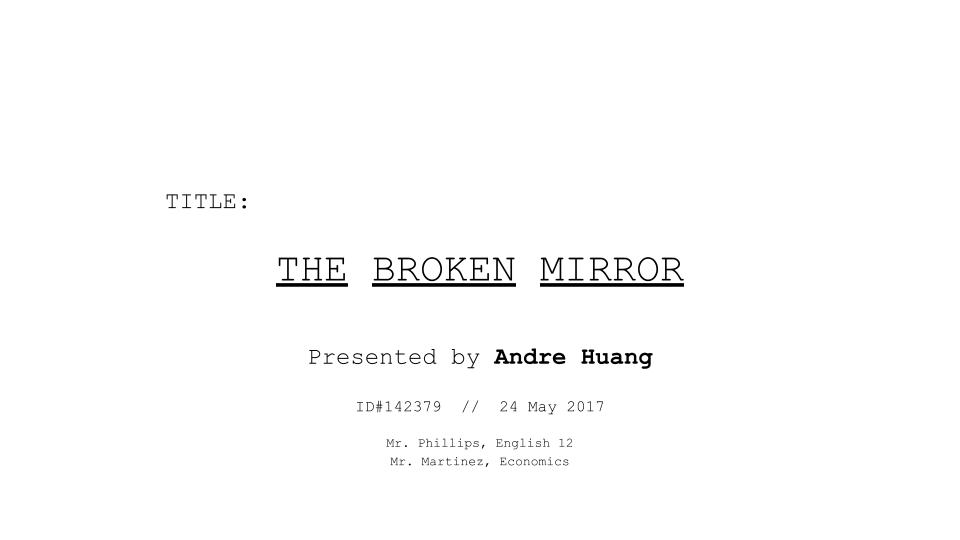


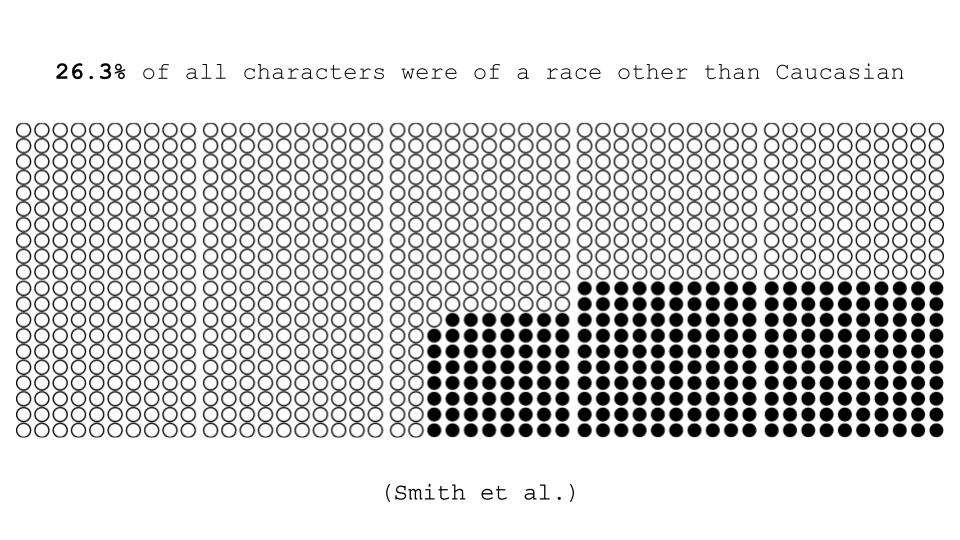
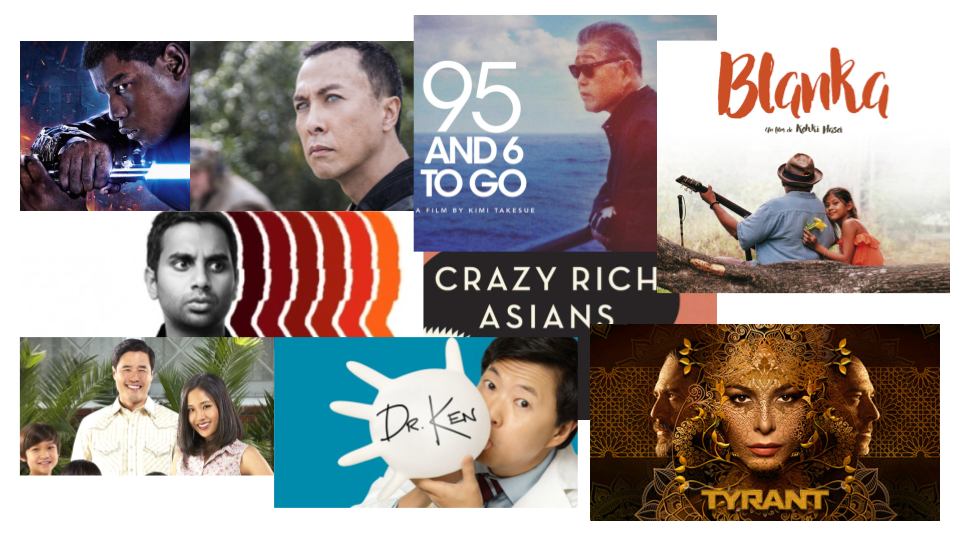
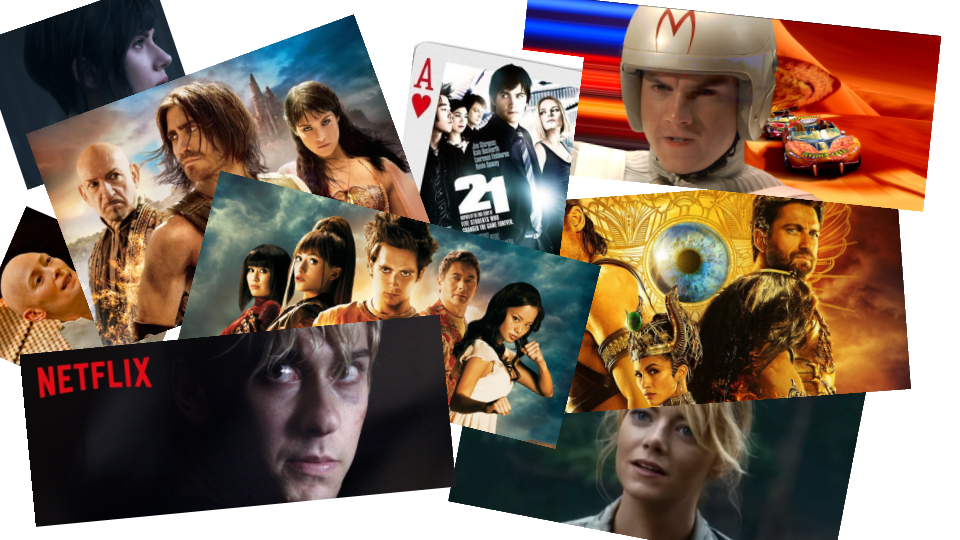
During the Q&A portion of my presentation, one of my teachers asked “Do you see the industry improving in the near future?” That question really shouldn’t have caught me off-guard, but my brain was stuck on the word “near.” I fumbled through a bullshit “Uh…yeah I think so …probably?” response, but truthfully, I didn’t believe change could happen anytime soon.
That summer, I spent some time producing a video essay, in which I talked even more about the issue, specifically in relation to the 2017 Ghost in the Shell remake starring Scarlett Johansson as Motoko Kusanagi, and how that film was a perfect encapsulation of the state of Asian American representation and whitewashing in Hollywood at the time. In both my senior project presentation and that summer video, I expressed a wistful optimism for what I thought was a far-off future.
Well…surprise! That future arrived only one year later, starting with the debut of the little movie that could, Crazy Rich Asians. Today, as I prepare to graduate as a senior in college with a degree in Animation, I ready myself to enter a film/television industry that’s experiencing radical change. A change that only those of us who came of age before Crazy Rich Asians (and Fresh off the Boat!) can really appreciate.
The Eureka Moments
Growing up in the 2000s and 2010s, I (of course) didn’t see a lot of Asian people like me on TV or movie screens. And the few times they were there, it was often in embarrassing or meaningless roles. Now, I could tell you how this lack of representation made me feel—unimportant, unincluded, undesirable, invisible—but you’ve already heard that from every minority who’s talked about this issue. And besides, those feelings aren’t exactly true for me. At least…not from the beginning. Yes, there were a lot of non-Asian people on TV growing up, but I had no problem enjoying and engaging with stories featuring people who didn’t share my complexion.
Nah for me, the lack of Asian representation on screens originally manifested as a mostly harmless running joke among my friends and family throughout my childhood. Even though I wasn’t tuned into social issues as a kid, I was keenly aware of the lack of Asians (and other minorities) on TV and in movies. It was a fact that I simply took for granted. And obviously, growing up in the SF Bay Area, surrounded by Asian people, and going to school with mostly Asian American kids, then coming home and seeing White people on TV instead, there was literally no way for me NOT to notice something was off about that, even as a little kid. To this day, whenever I spot an Asian person in a commercial or something, I have a trained Pavlovian response to point at the screen, and yell “Asian!”

And while those rare eureka-like moments of Asian recognition could be exciting, they were almost always undercut by the realization of what that Asian actor was doing. I couldn’t tell you how many times I’ve experienced:
“Asian guy! …aaand he’s a nerd…”
“Asian guy! …aaand he’s doing kung fu for no reason…”
“Asian girl! …aaand she didn’t have any lines…”
The more I experienced this as I grew up, what once was a harmless joke slowly stopped being quite as funny. As a teenager I started to learn more about inequality, social injustices, and discrimination. In high school I did that senior research project and video essay. In college, I took my first Asian American history course. All the while, I continued to consume TV and film. And those isolated incidents of Asian recognition-disappointment started to pile up into an annoyance.
Asian guy!
Unimportant.
Asian girl!
Unincluded.
Asian guy!
Undesirable.
Asian girl!
Invisible.
To be fair, it’s not like I was completely starved for proper Asian American representation; I just didn’t find it in mainstream media. In late 2000s, when Youtube was in its early years of existence, Asian American filmmakers and entertainers unexpectedly thrived on this platform. I still remember checking out the latest KevJumba, NigaHiga, and Wong Fu Productions vlogs, skits, and short films on my brother’s iPod Touch late at night instead of going to sleep. And of course, I watched a few Michelle Phan makeup tutorials, just out of curiosity…




Youtube was such an important place for many young Asian Americans like me in the 2000s to the 2010s to find our on-screen representation…but at the same time, I knew we could ask for more. We didn’t want to be relegated to the niches of the internet. We wanted a spot at the cool kids table: Hollywood. And in the late 2010s, our wishes started to come true.
Crazy Weird
I don’t think anybody saw the success of Crazy Rich Asians coming, least of all Asian Americans. I think within the Asian American community there was a lot of hype behind the film, but there was no guarantee that it would interest anyone else. I was hopeful after the success of the TV sitcom Fresh off the Boat, but doubtful if the enthusiasm for the Huang family would translate to Crazy Rich Asians‘ box office success. Especially since Ghost in the Shell (the whitewashing movie to unintentionally end all whitewashing movies) had literally just come out the year prior.
Truth be told, when I was working on my high school senior project, I was aware that a movie featuring Hollywood’s first All-Asian cast since Joy Luck Club (1993) was in development—but would it be successful? Would it change the industry? Would it even be any good?

When I turned up to my local theater on the Saturday afternoon the week Crazy Rich Asians opened in August 2018, I was shocked to find a massive (and diverse!) line of people wrapping around the block waiting to get their tickets.
I have never seen that for any other movie, before or since.
I wasn’t able to see Crazy Rich Asians that day, but I went home excited. Crazy Rich Asians ended up being very successful, and the Asian diasporic community in particular was totally galvanized. Even my mom, who normally isn’t interested in movies, said “Maybe we should go see it.” So, the next weekend, I went with my family.
And well, it was a good movie. But it also felt, like, super weird. Of course I’ve always wanted to see an Asian-led Hollywood movie, but here I was, actually experiencing it.
This is what it feels like?
It was weird. I felt exposed. I didn’t expect to get here so soon. And even though I don’t necessarily resonate with the characters in the film that deeply, just the fact that I was seeing Asian faces and hearing Asian voices in a movie theater, who were nuanced, dramatic, funny, desirable, and important—it was deeply moving. Weird, but moving. And exciting. With Crazy Rich Asians, I think audiences and the industry at large finally started to understand the power of genuine representation.
Take it All for Granted
And the best part of Crazy Rich Asians’ success was that it paved the way for so many more films with Asian American voices both in front of and behind the camera. Crazy Rich Asians was just the beginning. After it, we saw the baton pass onto The Farewell, Always Be My Maybe, Minari, Raya and the Last Dragon, Shang-Chi and the Legend of the Ten Rings, Turning Red, Everything Everywhere All At Once, and many more I didn’t mention. This is a full-on New Wave Era of Asian American Cinema™ and I’m so here for it. I feel privileged that I was alive to witness the beginnings of it, and hopefully, now that I’ve graduated from animation school, to eventually be a part of it.

And the best thing is—Asian American kids being born today and in the future are going to take this all for granted one day. They’re going to be spoiled! Seeing an Asian person on TV or in a movie won’t be special anymore! They’ll never have to point at a screen and yell “Asian!”
That’s progress!
So now, half a decade after I gave that presentation about the “Lack of Diversity in American Entertainment” to my teachers at the end of my senior year of high school, I finally have a confident answer to the question “Do you see the industry improving in the near future?”
Uh, yeah. I think so.
.
.
.
Hyperlinks / Recommendations:
- Five years ago, ‘Ghost in the Shell’ accidentally destroyed a racist Hollywood tradition https://www.inverse.com/entertainment/ghost-in-the-shell-scarlett-johansson-five-year-anniversary
- ‘Crazy Rich Asians’ Becomes Most Successful Studio Rom-Com in 9 Years at the U.S. Box Office https://www.hollywoodreporter.com/news/general-news/crazy-rich-asians-becomes-successful-studio-rom-9-years-1139353/
- ‘I didn’t need to apologize for being Asian:’ Since its start, YouTube allowed creators to celebrate Asian joy https://www.insider.com/youtube-asian-representation-wongfu-nigahia-michellephan
- NigaHiga https://www.youtube.com/c/ryanhiga
- KevJumba https://www.youtube.com/c/kevin
- Wong Fu Productions https://www.youtube.com/user/WongFuProductions
- Michelle Phan https://www.youtube.com/c/MichellePhan
- VIDEO: How These Films Accurately Represent Chinese Americans | Depiction Matters https://youtu.be/6rzvaJgxWOk
- BOOK: RISE: A Pop History of Asian America from the Nineties to Now https://www.harpercollins.com/pages/rise
